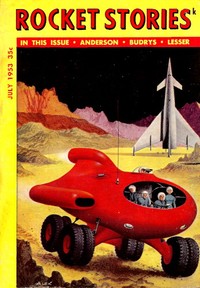psikeyhackr
Physics is Phutile, Fiziks is Fundamental
- Joined
- Jul 17, 2013
- Messages
- 2,180
I was checking out a recent addition to Project Gutenberg and encountered this:
"We can't do anything else," I answered. "We're ninety-three million light years away from the Earth, and twenty-five outside the patrol area."
That is near the beginning of To the Sons of Tomorrow by Irving E. Cox
The Earth just coincidentally happens to be 93 million miles from the Sun but the Andromeda galaxy is a mere 2.5 million light years away. Of course there was no Wikipedia in 1953 but:
 en.m.wikipedia.org
en.m.wikipedia.org
Hubble figured out that other galaxies are pretty far away in the 1920s.
Now I realize this can be regarded as rather silly and petty since this is science FICTION and we don't even know if any kind of FTL is possible but that distance is ridiculous. I am tempted to read it to see if the story could be accomplished inside this galaxy but just thinking about that may annoy me too much.
Yeah, go ahead, laugh at me. I can hear you already.
"We can't do anything else," I answered. "We're ninety-three million light years away from the Earth, and twenty-five outside the patrol area."
That is near the beginning of To the Sons of Tomorrow by Irving E. Cox
The Earth just coincidentally happens to be 93 million miles from the Sun but the Andromeda galaxy is a mere 2.5 million light years away. Of course there was no Wikipedia in 1953 but:
List of nearest galaxies - Wikipedia
 en.m.wikipedia.org
en.m.wikipedia.org
Hubble figured out that other galaxies are pretty far away in the 1920s.
Now I realize this can be regarded as rather silly and petty since this is science FICTION and we don't even know if any kind of FTL is possible but that distance is ridiculous. I am tempted to read it to see if the story could be accomplished inside this galaxy but just thinking about that may annoy me too much.
Yeah, go ahead, laugh at me. I can hear you already.


